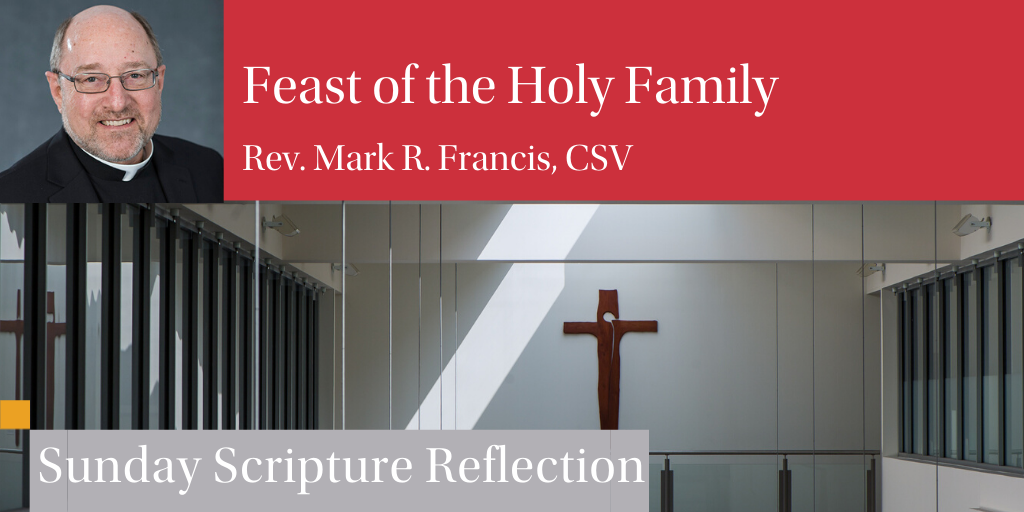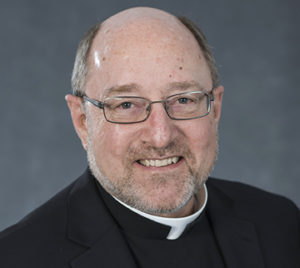

First Reading:
Sirach 3: 2-6, 12-14
Responsorial Psalm: 128: 1-2, 3, 4-5
Second Reading: Colossians 3: 12-21
Gospel: Matthew 2: 13-15, 19-23
I have always been skeptical when told that the Holy Family was a model for all families. I saw depictions of this joyful, haloed threesome on holy cards, walking happily along a path lined with flowers, seemingly without a care in the world; it certainly didn’t look like my family! While I grew up in a loving home, I don’t remember similar strolls with my parents (along with my two brothers and a sister in tow). I could only imagine how this image must contrast with the everyday experience of parents who are living out their day-to-day commitment to each other and to the children they have brought into the world. The idealized “holy card” version of the Holy Family fails to reflect both the context and the tensions experienced by Jesus, Mary, and Joseph as they contended with the many challenges of their life as a family.
While it is impossible to know the intimate details of the Holy Family’s life, one thing seems certain: it was far from idyllic. In today’s Gospel reading, an angel warns Joseph in a dream to take Mary and Jesus and flee to Egypt because the despot Herod was seeking to kill Jesus. The fear, the uncertainty, the danger that drove Jesus, Mary and Joseph out of their own country — abandoning family and friends — are not unlike the conditions that force many of our brothers and sisters today to seek safety and a life of dignity far from their native country. According to the UN refugee agency, over 70 million people today are displaced by violence, economic need, and persecution. On this feast of the Holy Family, we are challenged to look beyond holy card depictions of the Holy Family and reflect on a reality that is all too present in our modern world.
One of the first pastoral gestures with which Pope Francis began his pontificate was to visit the small island of Lampedusa in the Mediterranean. It is on this island that desperate refugees and migrants from Libya and south Saharan Africa continue to seek shelter, trying to cross the sea in order to arrive in Europe. Many die in the crossing on flimsy and overloaded boats. It was here that the Pope spoke of the “globalization of indifference” in regard to the suffering and death of so many displaced persons in our world today — from war-torn Syria, religious persecution in Thailand, and fear of death from violent gangs in Central America.
In reflecting on the plight of the Holy Family described in the Gospel, we are challenged to see in our sisters and brothers living under deplorable conditions in refugee camps in Greece, in overcrowded holding facilities along our own southern border, or on dangerously overloaded boats crossing the Mediterranean, the very presence of Christ. This is, after all, a primary revelation of Christmas — the incarnation of God in the weak, defenseless, and mistreated. We are invited to enter into this mystery of Christmas by sharpening our perception of the reality of the Holy Family two thousand years ago. As Pope Francis has often reminded us,
… a change of attitude towards migrants and refugees is needed on the part of everyone, moving away from attitudes of defensiveness and fear, indifference and marginalization — all typical of throwaway culture — towards attitudes based on a culture of encounter, the only culture capable of building a better, more just and fraternal world.
When viewed in this light, perhaps the Holy Family is, indeed, a representative example of families across the globe.
Rev. Mark R. Francis, CSV
President
Professor of Liturgy